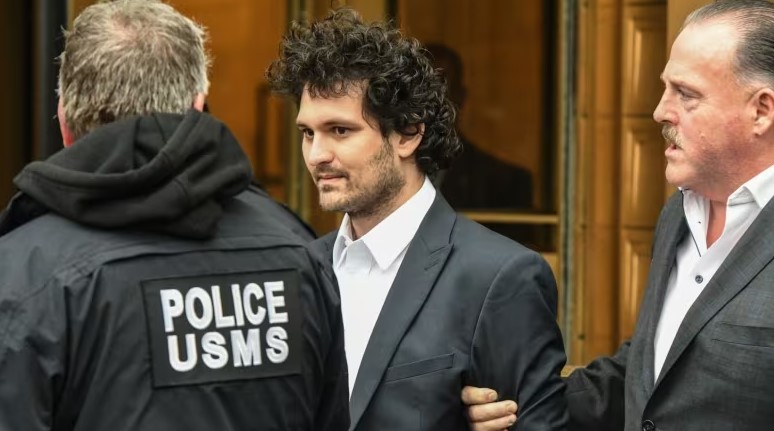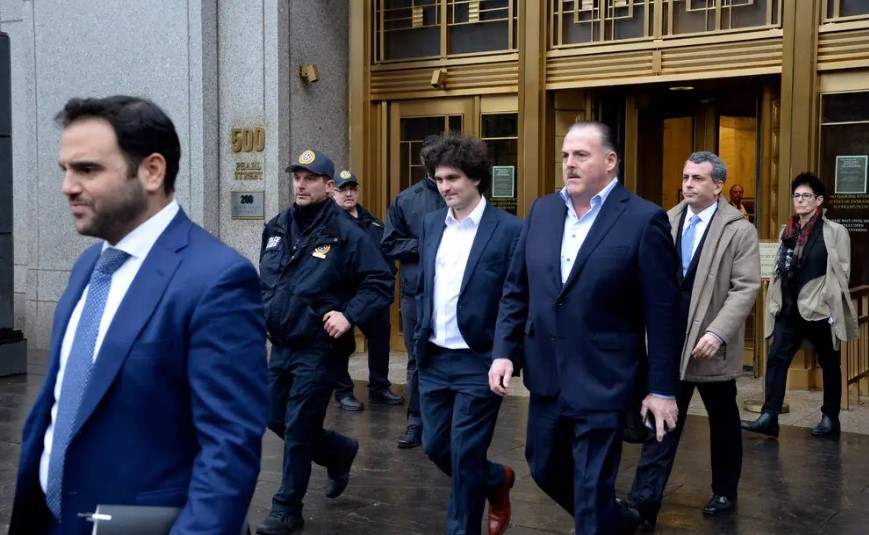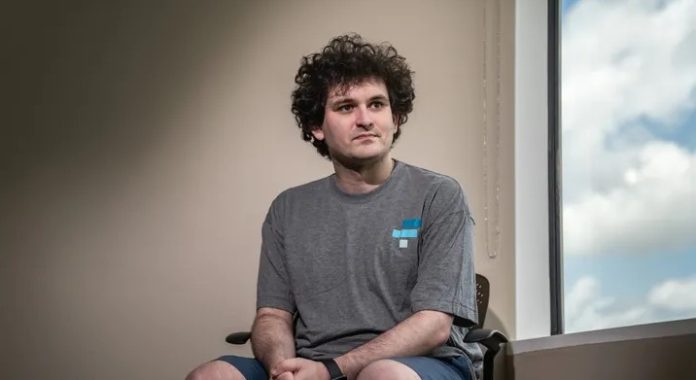Sam Bankman-Fried, aged 32 and hailing from Stanford, California, stood before a Manhattan court on Thursday, awaiting sentencing for what prosecutors have labeled as one of the most significant financial fraud cases in American history.
Last November, Bankman-Fried was found guilty on multiple charges, including two counts of wire fraud conspiracy, two counts of wire fraud, and one count of conspiracy to commit money laundering.
Each of these offenses carries a potential maximum sentence of 20 years in prison. Additionally, he was convicted of conspiracy to commit commodities fraud and conspiracy to commit securities fraud, each carrying a maximum sentence of five years.
The accusations against him revolved around the alleged misuse of customer deposits within the cryptocurrency trading platform FTX, which he had founded.
Prosecutors claimed these funds were diverted to cover losses at his hedge fund, settle debts, and finance extravagant real estate purchases, among other personal expenditures.
During the sentencing hearing, prosecutors argued that due to the “enormous scale of the fraud,” Sam Bankman-Fried deserved a prison term ranging from 40 to 50 years.
Facing the court before his sentencing, Bankman-Fried stood at the defense table with his arms folded, often looking down and speaking softly.
He admitted to the court that his “mismanagement” led to the closure of Alameda, his privately controlled hedge fund, following its initial success. Bankman-Fried expressed deep remorse, acknowledging that he had “failed everyone and everything” he cared about.
“I threw all of that away. It haunts me every day,” he said, reflecting on his actions. He characterized his choices as a series of “bad decisions,” neither selfish nor selfless, but simply misguided.

Bankman-Fried also recognized the financial toll his actions had taken on FTX customers. “The customers, creditors, lenders, they haven’t been paid back,” he stated. “That has caused a lot of damage.”
Sunil Kavuri, a technology investor based in London and representing 200 victims as a part of Shomei Group, spoke before the court on Thursday before the sentencing.
“I have endured daily suffering,” Kavuri expressed. He contested the notion that victims had been fully compensated through bankruptcy payments, stating, “This is an ongoing falsehood.” He further lamented the loss of funds intended for purchasing a family home, which were taken away as a result of the fraud.
Kavuri also highlighted the dire consequences suffered by victims of the FTX scheme, noting instances of depression and tragically, cases where victims had taken their own lives.
According to their assessment, prosecutors emphasized that over $8 billion of customer funds were misappropriated, placing this crime in an exceptionally rare category.
They further outlined the extensive scope of Bankman-Fried’s actions, stating that he victimized tens of thousands of individuals and companies across multiple continents over several years.
They accused him of deceiving customers, investors, and lenders, funneling illegal donations into the political system, and bribing foreign officials.
However, Judge Lewis Kaplan swiftly dismissed Bankman-Fried’s contention that the fraud amounted to less than $8 billion, challenging his assumption that FTX customers would be fully compensated through bankruptcy proceedings.
“The defendant’s argument rests on the assumption that FTX customers will be reimbursed in bankruptcy,” Kaplan retorted. “The defendant’s assertion that FTX customers and creditors will be paid in full is deceptive and logically flawed.”
In November 2022, Bankman-Fried resigned from his position at FTX amidst a rapid downfall that culminated in the company’s bankruptcy declaration, marking a stark contrast from its peak valuation of $32 billion.
Assistant U.S. Attorney Nicholas Roos argued for a severe sentence for Bankman-Fried, citing concerns about the potential for future criminal behavior. Roos emphasized that Bankman-Fried did not explicitly renounce the possibility of repeating his offenses during his address to the court.
“A sentence of at least 40 years is essential to prevent the defendant from reoffending,” Roos asserted.
The prosecutor recounted the devastating impact on victims who trusted Bankman-Fried’s assurances, conveyed through social media or other channels, that their funds were secure.
“While the defendant may not be a monster, his actions constitute grave criminal offenses,” Roos stated. “The scale of criminality here is vast and permeates all aspects of the business. This was not merely a successful enterprise that encountered difficulties; it was characterized by pervasive fraud.”

Ahead of Thursday’s sentencing, defense attorneys criticized the government’s request for a 40 to 50-year prison term as “barbaric,” advocating instead for a sentence of approximately six years based on Bankman-Fried’s profound remorse for the harm caused. They maintained that the damage to customers, lenders, and investors was minimal.
During the proceedings, defense attorney Mark Mukasey portrayed Bankman-Fried as a compassionate individual with interests in video games and veganism, describing him as an “awkward math nerd.” Mukasey highlighted Bankman-Fried’s empathy, generosity, and tireless work ethic, asserting that his intellect was extraordinary.
While acknowledging comparisons between Bankman-Fried’s fraud and Bernie Madoff’s Ponzi scheme, Mukasey rejected the characterization of his client as a heartless financial criminal.
He argued that Bankman-Fried lacked the level of depravity associated with such schemes and emphasized his client’s lower culpability.
Mukasey further contended that Bankman-Fried had not absconded with vast sums of money, unlike other notorious financial criminals.
“With all the advantages conferred by a comfortable upbringing, an MIT education, a prestigious start to his career in finance, and a worthy idea for a startup business, Bankman-Fried could have pursued the rewarding, productive, and altruistic life he has sketched out in his sentencing submission,” remarked the prosecutor
” But instead, his life in recent years has been one of unmatched greed and hubris; of ambition and rationalization; and courting risk and gambling repeatedly with other people’s money”.


